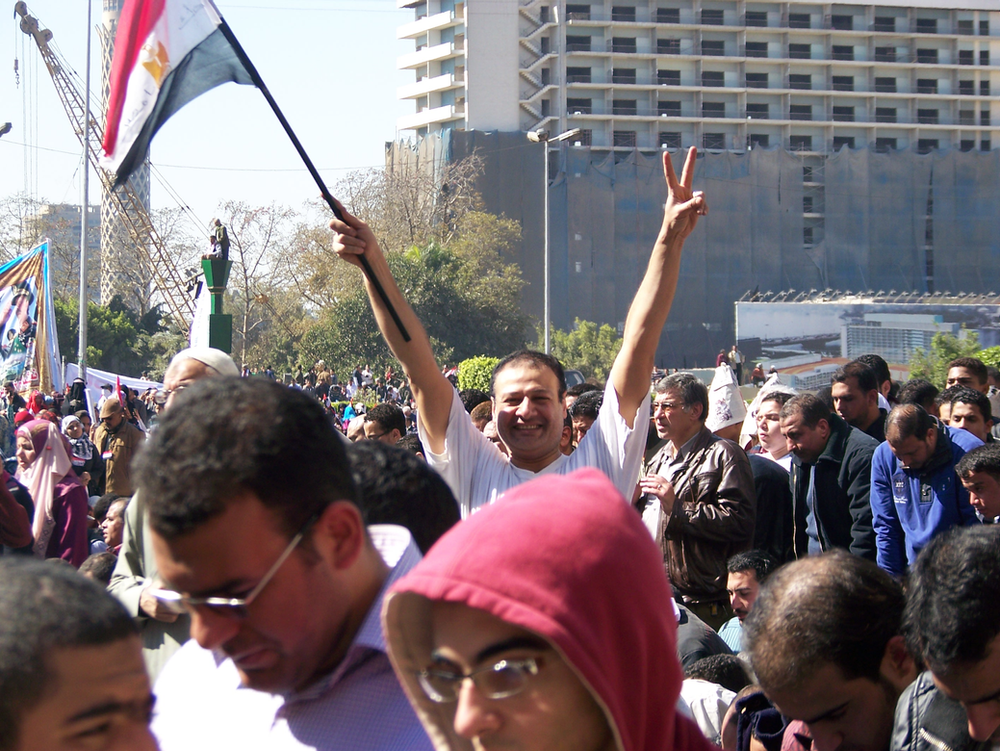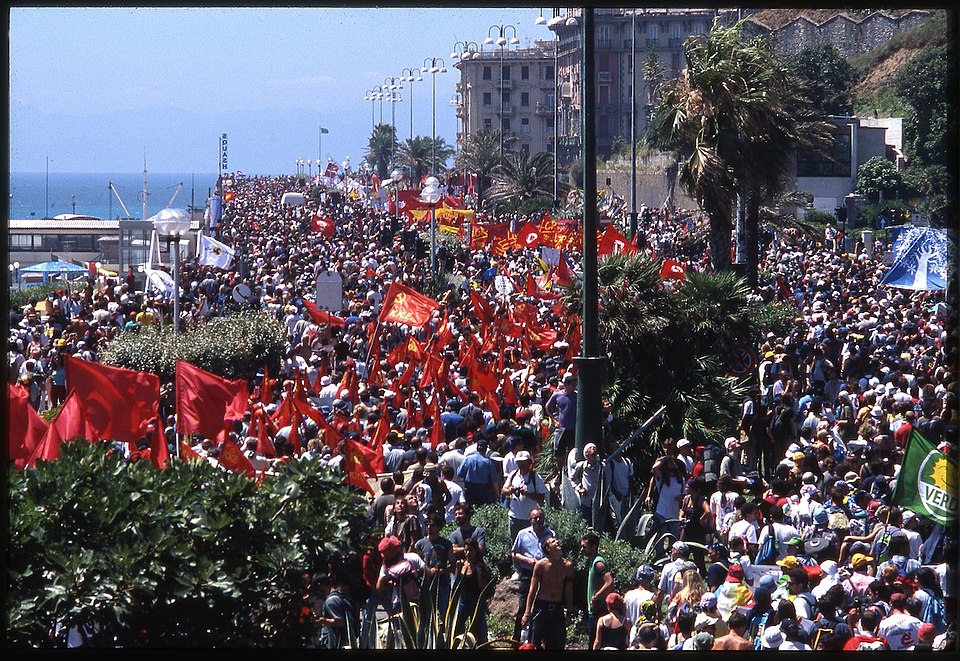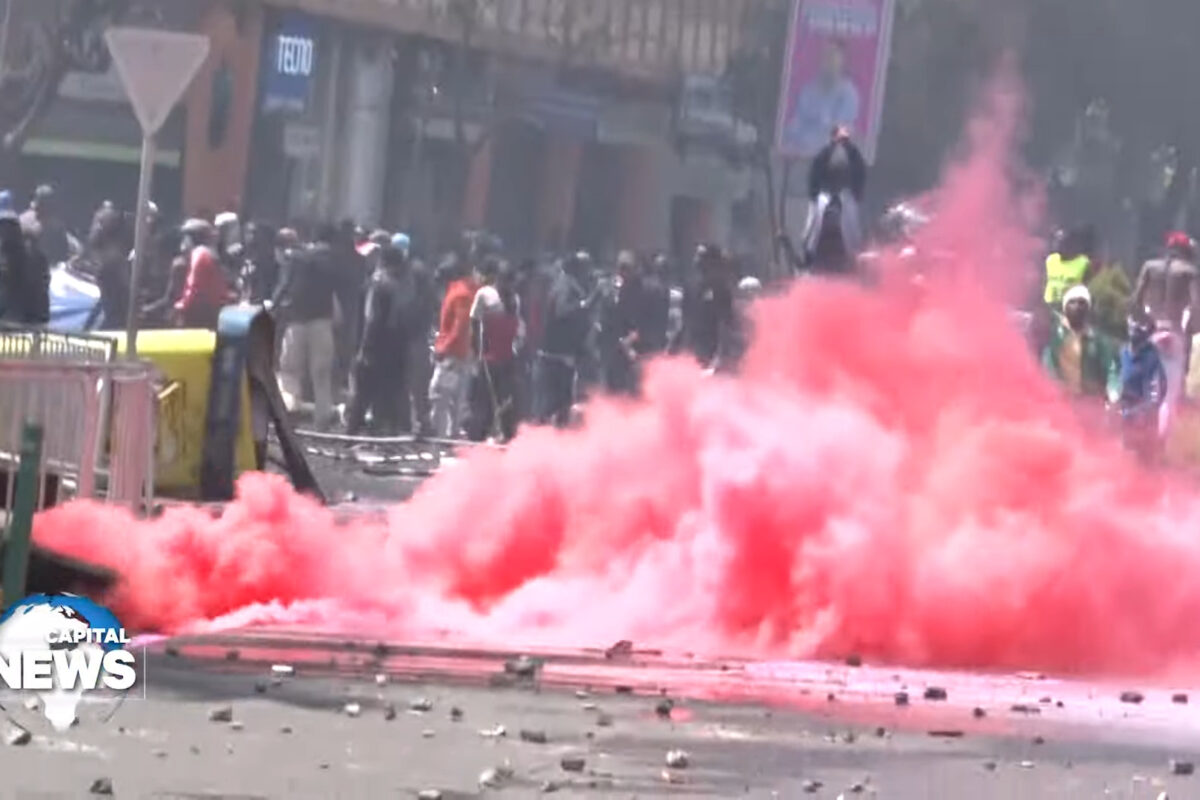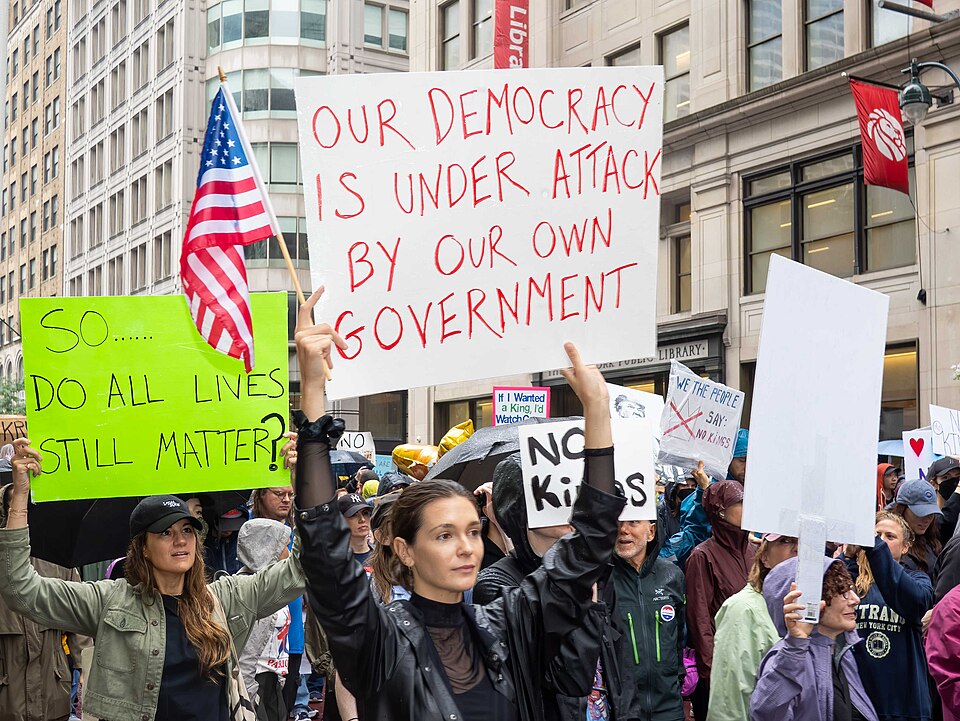Ten years ago, revolutions drove long-term dictators like Egypt’s Hosni Mubarak and Tunisia’s Ben Ali out of office. When I travelled to Egypt in September 2012, I felt that the experience of the revolution gave people new hope and energy. Trade unionists, women’s rights activists, human rights activists as well as street vendors and other workers I talked to felt invigorated.
Egyptian activist Hossam El-Hamalawy describes the days of the Egyptian revolution:
“For years people have dreamed of overthrowing Mubarak (…). Now millions of people took control of their lives and their neighbourhoods. They barricaded the streets and drove out the police forces (…). The so-called ‘Friday of Anger on 28 January was one of the most glorious days in Egypt’s history.”
Defeat of the revolution
However, to this day the demands of the revolutionaries have not been met. The military coup and the seizure of power by former defence minister Abdel Fattah el-Sisi in 2013 marked a temporary defeat for the revolution. The counterrevolutionary forces around the military and el-Sisi’s supporting elites were able to expand their power and stabilise the regime. The German government also played a role in this: already under Hosni Mubarak, Egypt was an important partner of the German government in migration deterrence and the fight against “international terrorism”; military and police reconstruction aid was provided in the name of “stability”. With the Sisi regime, this course is continues unabated.
Unprecedented repression
There are now believed to be more than 60,000 political prisoners in detention. Torture is widespread, hundreds of people have “disappeared”. Intolerable conditions in prisons have worsened with the COVID-19 pandemic. Human Rights Watch speaks of 14 prisoners who have died from COVID-19.
Internationally renowned organisations are targets of arbitrary attacks by the state. At the end of 2020, the scientists Gasser Abdel-Razek, Mohamed Basheer and Karim Ennarah from the Egyptian Initiative for Personal Rights were arrested and detained for three weeks. Previously, they had met with representatives of European embassies, including the German embassy, for a briefing on the human rights situation in Egypt. In February 2016, the corpse of Italian student Giulio Regeni was found with severe torture marks on a road on the outskirts of Cairo. These are two of the more prominent cases that have caused an outcry in the international me and demanded explanations from government spokespersons across Europe. But the fates of Regeni, Abdel-Razek, Basheer and Ennarah are shared by countless Egyptians whose names will remain unknown.
Based on increasing cyber-surveillance, prison sentences are regularly handed down for violating “public morals”. Women and members of the LGBTQ community are particularly affected. Sexual violence, abuse and torture are commonplace in police stations. Civilian security forces regularly infiltrate communities they have been declared immoral. After rainbow flags were waved at a concert of the Lebanese band Mashrou’ Leila in 2017, there was a huge wave of arrests, with security forces detaining 75 people. In 2019, the NGO Bedayaa documented more than 90 arrests.
Together with other members of the Bundestag and the European Parliament, I have issued an appeal in solidarity to draw attention to the fate of six socialists who are in Egyptian prisons and to demand their release and the release of all political prisoners.
In the Sinai, the Egyptian army has been brutally targeting alleged insurgents for years in the name of a “war on terror”. Videos show the Egyptian military executing unarmed men. In the city of Rafah, the government is blowing up houses along the border with Gaza to more effectively seal off the Palestinian territory. Over 1000 families were left homeless. The local people see themselves at the mercy of a “war against civilians”.
The German Federal Government – Partner in Crime
Despite this, the German government is backing the Sisi regime – militarily, economically and even with the Federal Cross of Merit. In November 2020, the representative of the Egyptian military dictatorship and former Egyptian ambassador in Berlin, Badr Abdelatty, was awarded the German state’s medal of honour for his “efforts”.
Germany is Egypt’s second largest economic partner after China. Of particular importance for the German export-oriented economy is the Suez Canal. After the military coup in 2013, the Egyptian military dictatorship received billions in support from the United Arab Emirates, Saudi Arabia and Kuwait. Huge investments in the energy sector and in construction projects were on the horizon, and German companies hoped to participate. The German government played a mediating role here: in 2015, at an international investors’ conference, Sigmar Gabriel, the Minister for Economic Affairs, paved the way for Siemens to secure a contract with the Egyptian military dictatorship. It is said to be the the largest contract in the company’s history. The deal was finalised during further state visits.
The German arms industry earns millions every year from weapons and armaments exported to the military dictatorship – approved by the German government “after intensive examination”. In terms of individual export licences, i.e. all arms exports including weapons for war, Egypt was in first place, buying 751.5 million euros worth of weapons from Germany in 2020. The German government was not swayed from its course by the brutal war in Yemen, which el-Sisi supports as part of the Saudi-led coalition. Nor is it worried by the civil war in neighbouring Libya, where the Egyptian military has already intervened.
Last year, the last of a total of four Thyssen Krupp Marine Systems submarines was delivered to Egypt. In November, the German government added ten more submarines to the Egyptian coast guard. These were originally to go to Saudi Arabia. However, due to Saudi Arabia’s involvement in the Yemen war, the German government imposed a temporary ban on arms exports to Saudi Arabia. Now it has given the green light for the export to Egypt. The current Egyptian ambassador in Berlin, Khaled Galal Abdelhamid, sees this as a “vote of confidence”.
In order to build Egypt as an “outpost of a European security policy”, the Bundestag ratified the bilateral “Agreement on Security Cooperation” in 2017. It follows the central logic of preventing migration by strengthening the security services: for example, in order to “combat smuggling of migrants”, border police cooperation is strengthened by, for example, the Federal Police stationing a liaison officer in Cairo and conducting workshops on document security. The Bundeskriminalamt (BKA, federal criminal police office) works with the notorious National Security Service (NSS) and trains Egyptian officers.
In September and October 2020, security forces brutally cracked down on informal settlements in poor areas, destroying numerous homes. The massive social and economic impact of the Corona crisis and austerity measures is also feeding resentment. Although the state violently suppresses any expression of dissenting opinion and resistance, nationwide protests have taken place.
Activist Hossam is counting on those who continue the resistance and keep fighting for social justice:
“The scale of the defeats in the first wave of the revolution was bloody and forced activists to organise underground. (…) They are in the process of rebuilding networks that were destroyed. (…) It will take time to revive the uprisings, but revolutions are inevitable!”
For “bread, freedom and social justice” to become a reality for all Egyptians, the German government must end its support for el-Sisi.
This article first appeared in German on the freiheitsliebe Website. Translation: Ava Matheis
Hossam el-Hamalawy will be speaking about the North African revolutions in an online meeting organised by the LINKE Berlin Internationals on Tuesday, 9th February




